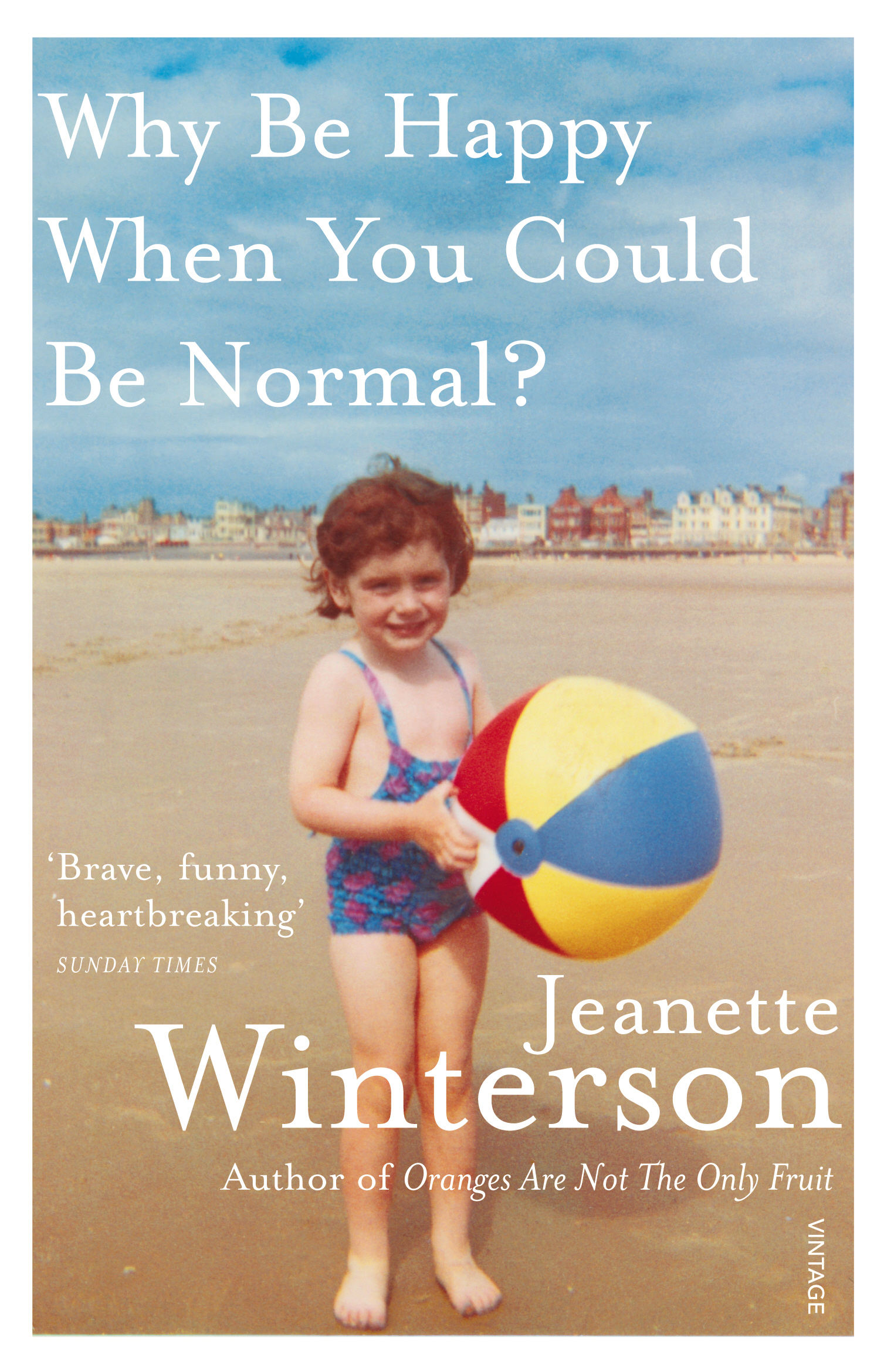Our book group choice for February 2018 is Why be Happy When You Could be Normal? by Jeanette Winterson. Witty, acute, fierce, and celebratory, Why Be Happy When You Could Be Normal? is a tough-minded search for belonging, for love, identity, home, and a mother.
Jeanette Winterson’s Why Be Happy When You Could Be Normal? is a memoir about her search for happiness, identity, and belonging. The book is divided into three parts: “The House of Lost Mothers,” “The Art of Being Normal,” and “The Art of Being Wild.”
In the first part of the book, Winterson recounts her childhood growing up in Accrington, England. She was adopted by a religious couple, who raised her in a strict Pentecostal household. Winterson’s mother was a devout believer, while her father was a charismatic preacher. The family’s home was filled with religious paraphernalia, and Winterson was expected to attend church services and pray regularly.
Winterson’s childhood was not easy. She was often bullied by her peers, and she felt like an outsider in her own family. She was also aware that she was different from her adopted parents in terms of her sexuality. Winterson knew that she was attracted to girls, but she was afraid to tell anyone about her feelings.
In the second part of the book, Winterson describes her teenage years. She left home at the age of 16 and moved to London, where she began to explore her sexuality. She also started to write, and she eventually published her first novel, Oranges Are Not the Only Fruit.
The third part of the book tells the story of Winterson’s search for her biological mother. She eventually tracked down her mother, but the reunion was not what she had expected. Winterson’s mother was not the loving and supportive parent that she had hoped for.
Why Be Happy When You Could Be Normal? is a powerful and moving memoir about the search for identity and belonging. Winterson’s writing is honest and insightful, and she does not shy away from the difficult parts of her story. The book is a testament to the power of the human spirit, and it is a reminder that it is possible to find happiness even in the midst of adversity.
In addition to its personal insights, Why Be Happy When You Could Be Normal? also explores a number of broader themes, including the nature of identity, the role of religion in society, and the power of art. Winterson’s writing is thought-provoking and challenging, and she does not offer easy answers. However, she does provide readers with a valuable framework for thinking about these complex issues.
In addition to the themes mentioned above, Why Be Happy When You Could Be Normal? also explores the following themes:
- The power of literature
- The importance of family and friends
- The search for home
- The nature of happiness
Discussion Questions Why be Happy When You Could be Normal?
- Is this a feminist book?
- Are there any characters who stand out in their description?
- Do you think the retelling the early story was an effective vehicle?
- Did the two halves mesh together? Or was it jarring?
- What did you make of the format? Scrappy vs. structural?
- Were her parents ultimately painted in a sympathetic light?
- Is the title referring to something specific? Or disappointing her mother?
- How is the idea of working class society explored in the book?
- How does religion hinder or help Jeanette?
- What is she saying about love?
- How was her personal moment of suicide handled? How about her wider battle with mental health?
- What resolution does meeting her biological mother provide?
- Does she forgive either of her mothers?
- What did you make of the coda?

